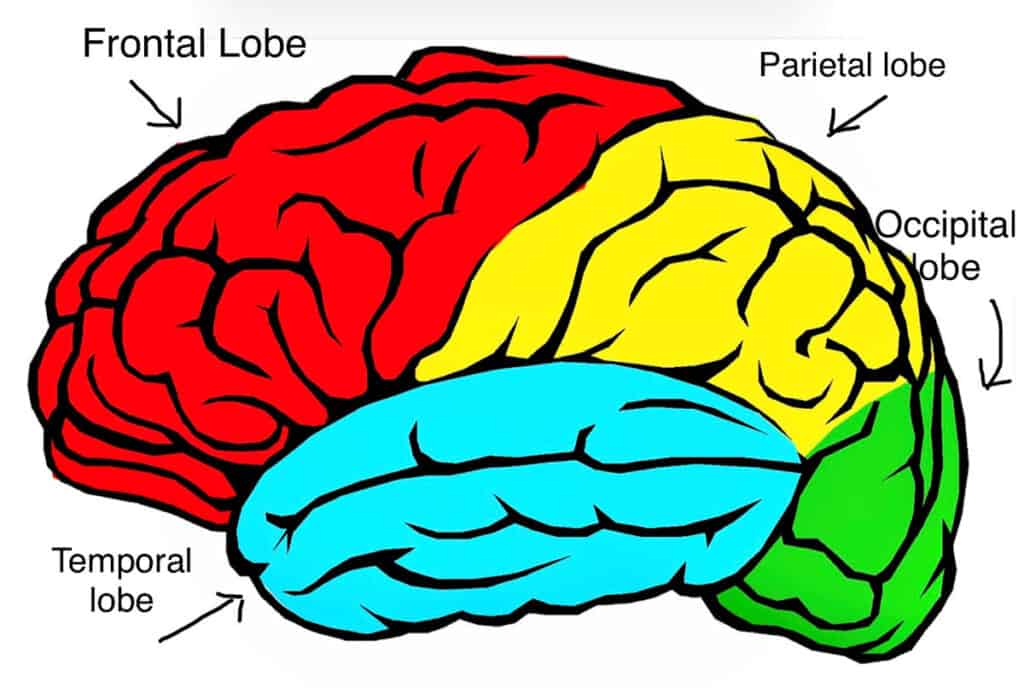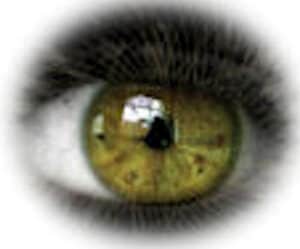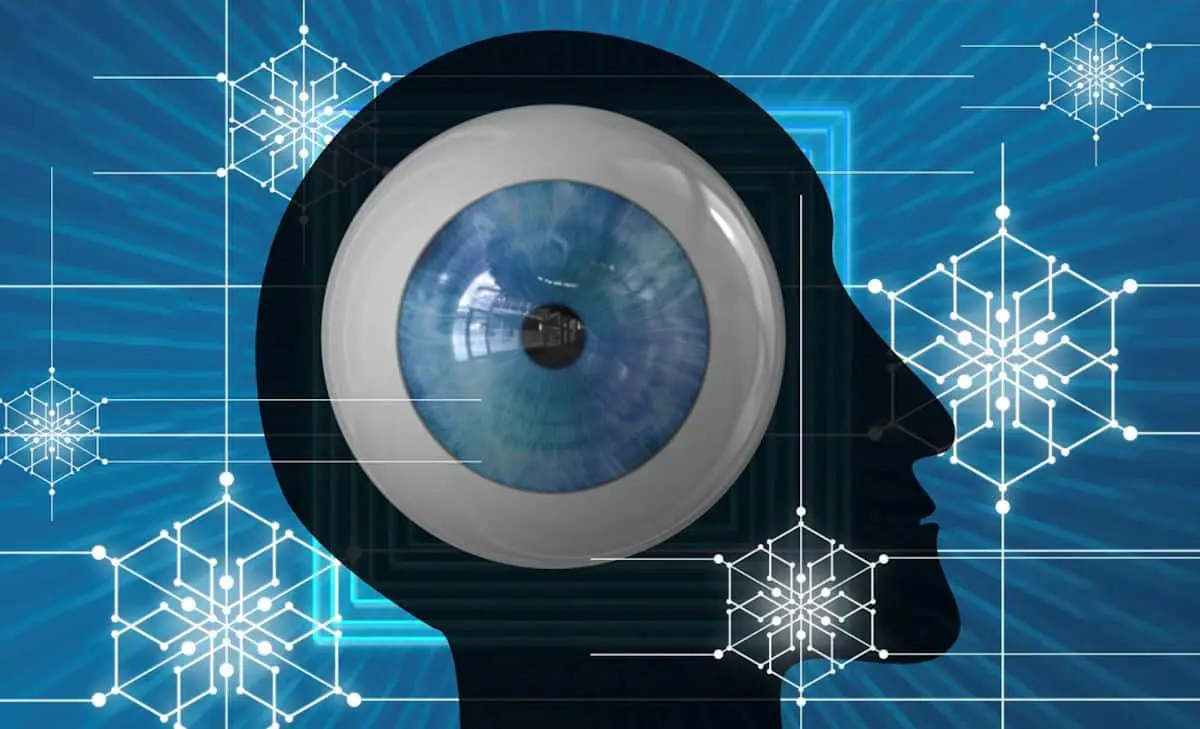Low vision can make it harder for a visually impaired person to encode (learn) and recall visual memories because the visual information is not available. This can lead to difficulty remembering things they have ‘seen,’ such as faces, objects, or locations.
Additionally, if a person with vision impairment is unable to engage in visually stimulating activities, it may also lead to a decline in cognitive function. However, it is important to note that vision impairment alone does not necessarily cause memory loss or cognitive decline.
How are vision and memory connected?
Vision and memory are connected through various processes such as visual information processing, spatial memory and navigation, attention, perceptual learning, emotional processing and brain damage.

Visual information processing: The occipital lobe of the brain processes visual information and sends it to other areas of the brain, such as the temporal and parietal lobes, where it is encoded (learned)and stored as memories.
Spatial memory and navigation: Visual cues and landmarks play an important role in spatial memory and navigation. Good vision is necessary for clues to learning (encoding) and recalling visual memories, such as faces, objects, or locations.
Attention: Vision and memory connected through the process of attention. People with good vision are better able to focus their attention on relevant visual information, which is important for learning and recalling memories.
Perceptual learning: Vision and memory are also connected through the process of perceptual learning, which is the ability to improve the perception of visual stimuli through repetition and practice. This type of learning is thought to rely on changes in the brain’s visual areas and the formation of visual memories.
Emotion and memory: Visual information is also strongly connected to emotions, and emotional experiences can enhance the encoding and recall of visual memories.
Damage to visual areas of the brain: Damage to specific areas of the brain such as the occipital lobe can lead to visual impairments and difficulties with visual memory.
Does the brain function differently after vision loss?
The brain has the ability to adapt, and it can compensate for vision loss by recruiting other areas to process visual information. The brain can also change the way it processes the visual information.
For example, in people with vision loss, the brain may increase activity in the auditory and somatosensory regions to help process information about the environment. This process is called neuroplasticity, and it allows the brain to use other senses, such as hearing and touch, to compensate for vision loss. (Ref: Neuroplasticity in visual impairments )
)
Definition: neuroplasticity, the ability of the brain to reorganize and make functional changes to compensate for a sensory deficit.
Additionally, with vision loss, the brain may also change the way it processes visual information. For example, people with vision loss may have difficulty recognizing and remembering faces, objects, or locations. They may also have difficulty with attention and concentration, which can affect their ability to learn and perform tasks.
It is also possible for people with vision loss to experience changes in their brain connectivity as a result of the loss . studies have shown that their vision loss, the brain may rewire itself to adapt to the changes in visual input, and this can lead to changes in the way the brain processes visual information. It is though that the occipital lobe, which processes vision, will be recruited to process touch for Braille reading or sound localization for learning to help compensate for the loss visual information. (RefL ; Neural Reorganization Following Sensory Loss: The Opportunity Of Change )
)
It is important to note that the extent and specifics of how the brain adapts to vision loss can vary depending on the individual and the specific cause of the vision loss
How does vision loss affect you intellectually?
Vision impairment can affect the ability to think and reason (cognition) in several ways, including:
Visual information processing: Difficulty processing visual information can make it harder for a person with vision impairment to encode and recall visual memories, which can lead to difficulty remembering things they have seen, such as faces, objects, or locations.
Spatial memory and navigation: Vision impairment can also affect spatial memory and navigation, as visual cues and landmarks play an important role in these processes.
Attention: Vision impairment can also affect attention, as people with good vision are better able to focus their attention on relevant visual information.
Social interaction: Vision impairment can also affect social interactions as it can make it harder for a person to recognize and remember faces and interpret social cues.
Learn more about the difficulty of social interaction: Why Those with Low Vision Have a Problem with Facial Recognition
Reduced participation in visually stimulating activities: People with vision impairment may avoid or have limited ability to participate in visually stimulating activities that can maintain cognitive functions.
Increased risk of depression and anxiety: People with vision impairment are at an increased risk of developing depression and anxiety, which can affect cognitive function.
Learn more about low vision and depression…Low Vision, Depression, and Anxiety
Again, it is important to note that vision impairment alone does not necessarily cause cognitive decline, but it can make it harder for a person to engage in activities that maintain cognitive function.
Is there an association between vision impairment and cognitive decline?
There is an association between vision impairment and cognitive decline in some cases, but not all. Vision impairment can make it harder for a person to engage in activities that stimulates interaction. such as visually stimulating activities and social interactions.
The difficulty in processing visual information and the inability to use visual cues and landmarks for spatial memory and navigation can also lead to confusion and cognitive decline. (Ref: Memory and Confusion Complaints in Visually Impaired … )
It’s important to note, again, that vision impairment alone does not necessarily cause cognitive decline. Additionally, some studies have shown that people with vision impairment are at an increased risk of developing cognitive decline and dementia, such as Alzheimer’s disease. This could be due to the fact that vision impairment and cognitive decline share common risk factors, such as age, genetics and underlying medical conditions. However, more research is needed to fully understand the relationship between vision impairment and cognitive decline.
How does the age of vision loss affect memory?
The age at which vision loss occurs can affect memory in different ways.
If vision loss occurs in early childhood, it can have a significant impact on the development of visual memory and other cognitive abilities. Children with vision impairment may have difficulty learning and recalling visual memories, which can affect their ability to learn and navigate their environment. They may also have difficulty recognizing and remembering faces and interpreting social cues, which can affect their social interactions. (Ref: Visual Impairment: Its Effect on Cognitive Development and Behaviour )
)
Neuroplasticity refers to the brain’s ability to change and reorganize itself in response to experience. In the context of children with vision impairments, neuroplasticity can help by allowing the brain to compensate for the loss of sight by strengthening connections in other parts of the brain responsible for processing visual information.
This process of rewiring the brain can help improve visual function and perception. Additionally, certain therapies and activities, such as sensory stimulation and physical therapy, can promote neuroplasticity and improve outcomes for children with vision impairments.
If vision loss occurs in adulthood, it can also affect visual memory and other cognitive abilities. Adults with vision loss may have difficulty encoding (learning and reasoning) and recalling visual memories, which can affect their ability to navigate their environment and recognize familiar faces and objects. They may also have difficulty with attention and concentration, which can affect their ability to learn and perform tasks.
Additionally, vision loss that occurs in older age, can be associated with a higher risk of cognitive decline and dementia, such as Alzheimer’s disease. This could be due to the fact that vision loss and cognitive decline share common risk factors, such as age, genetics and underlying medical conditions.
Another article you may be interested in…How do Visually Impaired People Work?
In the End…
The best way to circumvent memory loss and cognitive decline is to keep the brain active. Sensory stimulation such as sound (ex: music, audio books) and movement (ex: dancing, walking) and social interaction. Keep the brain cells engaged.
For those with residual vision, there is vision rehabilitation to help the visually impaired to learn to use visual aids and compensatory techniques.
It is important to note that the impact of vision loss on memory can vary depending on the individual and the specific cause of the vision loss. It is important to consult with a healthcare professional if you have concerns about memory or other cognitive changes related to vision loss, as there are various possible causes and treatments that should be considered.

